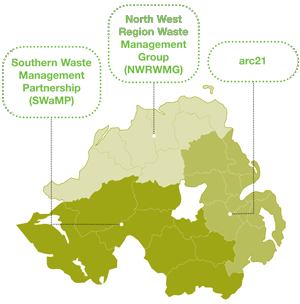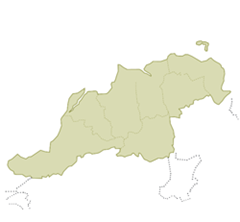Waste infrastructure update
 Three projects under the waste infrastructure programme are working to significantly different timelines. Stephen Dineen outlines recent developments.
Three projects under the waste infrastructure programme are working to significantly different timelines. Stephen Dineen outlines recent developments.
All three waste management groups are still involved in a competitive dialogue process for waste infrastructure projects but contrasting timelines exist for the three plans.
The Southern Waste Management Partnership (SWaMP2008) expects to award its contact for mechanical biological treatment (MBT) by April 2013 but has no construction timeline at present. The North West Region Waste Management Group (NWRWMG) hopes that its MBT and energy recovery facilities will become operational by the end of 2014. arc21 does not expects its MBT and energy from waste project to start operating until 2017-2018.
The Northern Ireland Waste Management Strategy 2006-2020 envisages waste management facilities at a limited number of key sites. Energy recovery is identified as an alternative treatment method to landfill.
By 2020, a limit of 35 per cent of 1995 levels of biodegradable municipal waste will be allowed go to landfill. Under the 2008 revised Waste Framework Directive, by 2020, 50 per cent of household waste will have to be prepared for re-use and recycling.
A DoE spokeswoman told agendaNi that while there has been “a degree of slippage in project delivery, overall changes in wastes arising, increases in recycling and other factors have also reduced the immediate pressure to have facilities operational as early as previously forecast.” The department is confident that 2020 landfill diversion obligations will be met.
Procurement processes are not owned by the department so it cannot set deadlines for awarding contracts. It has funded all costs so far (e.g. specialist financial, technical and planning advice), which totalled £9 million in procurement costs up to 31 March 2012. Funding is tied to procurement milestones but these are subject to revision.
The spokeswoman pointed out that this expenditure needs to be considered against total costs and “the potential financial consequences of any error at the negotiation stage.”
She added that benchmarking comparisons from two sources (data from projects in Great Britain and Defra’s Waste Infrastructure Programme) show that procurement costs here compare favourably with similar scale projects elsewhere in the UK. The department declined to release the information, citing commercial confidentiality.
Meanwhile, in February, the department warned against Energy Minister Arlene Foster’s proposals to redefine advanced gasification technologies (as proposed for NWRWMG) and amend the renewables obligation certificates (ROCs) levels for such energy sources.
In a submission to DETI, it stated that the tender bid for NWRWMG’s infrastructure project was predicated on the ability of the technology to achieve two ROCs from advanced gasification.
“There is a strong possibility that redefining the plant to standard gasification and reducing the level of its ROC support to 0.5 could render it no longer economically viable,” the letter stated.
In August, the proposal to reduce ROCs for the standard band of advanced conversion technology from one to 0.5 was dropped. The standard and advanced bands will be merged from 1 April 2013 and new accreditations and additional capacity will receive two ROCs until 2015-2016.








